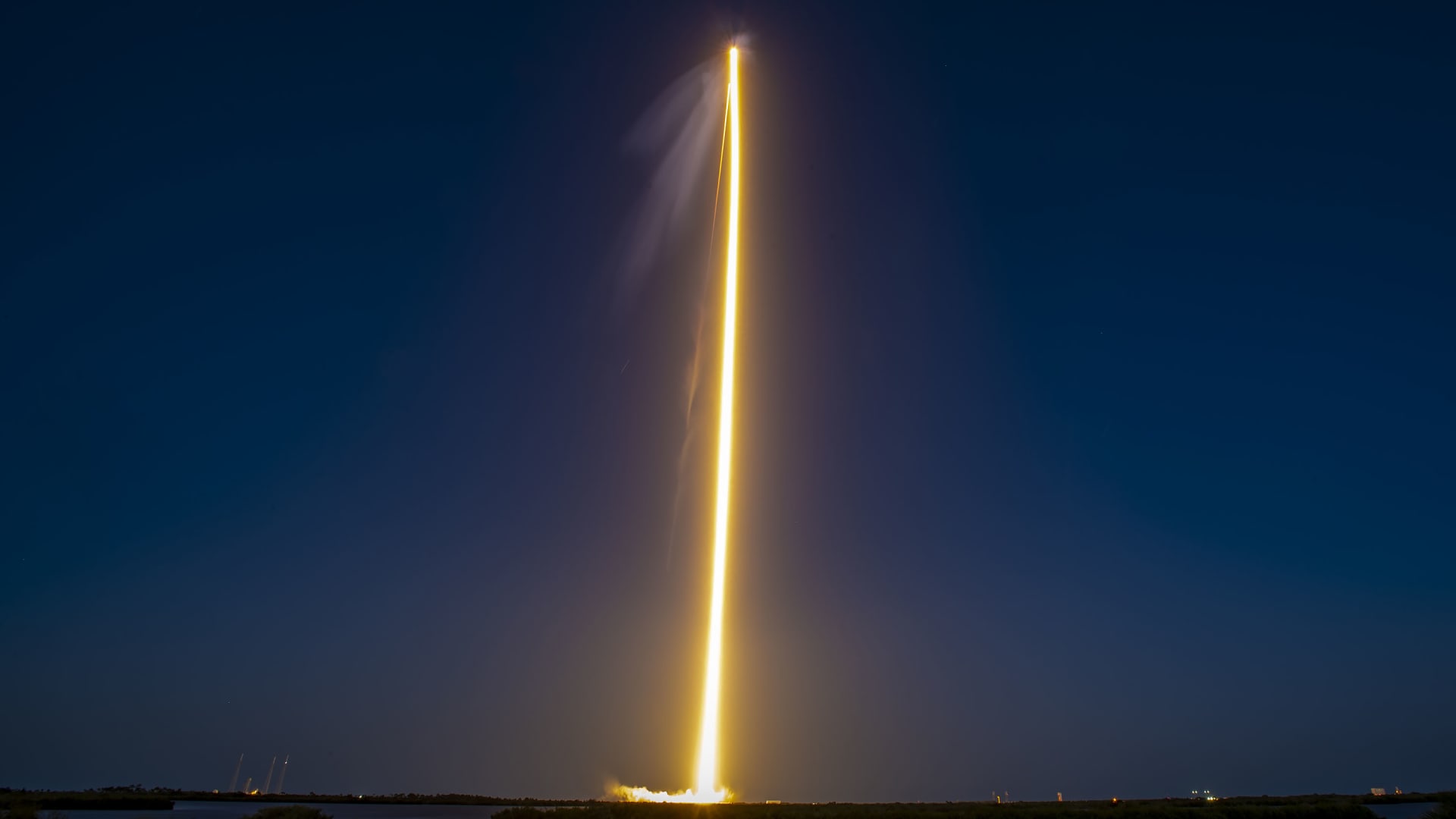A long-exposure photo shows a trail left by SpaceX's Falcon Heavy rocket while launching the ViaSat-3 Americas satellite from Florida on April 30, 202
A long-exposure photo shows a trail left by SpaceX’s Falcon Heavy rocket while launching the ViaSat-3 Americas satellite from Florida on April 30, 2023.
Viasat
Viasat‘s stock dropped in after-hours trading on Wednesday after the company disclosed its most recently launched communications satellite suffered a malfunction.
The Carlsbad, California-based company said an “unexpected event occurred” while deploying the reflector of its Viasat-3 Americas satellite “that may materially impact” performance. The satellite launched successfully in April on SpaceX’s Falcon Heavy rocket.
“We’re disappointed by the recent developments,” Viasat CEO Mark Dankberg said in a statement.
Shares of Viasat fell as much as 21% in extended trading from its previous close at $42.98 a share.
Sign up here to receive weekly editions of CNBC’s Investing in Space newsletter.
Viasat did not disclose the identity of the reflector’s manufacturer in its release. Dankberg said his company is “working closely” with the manufacturer to resolve the problem. A Viasat spokesperson confirmed to CNBC that the manufacturer is a top aerospace and defense company – but noted that it is not Boeing, which built the 702MP+ bus that is the spacecraft’s structure and power.
The design of the reflector on the Viasat-3 Americas satellite appear to match the “AstroMesh” line of reflectors that Northrop Grumman advertises. Additionally, Viasat has said the “long boom arm” that supports the reflector is a “direct derivative” of the telescoping booms that Northrop Grumman built for NASA’s James Webb Space Telescope.
Viasat has previously thanked both Boeing and Northrop Grumman as part of its combined team behind the Viasat-3 Americas satellite.
Northrop Grumman did not immediately respond to CNBC’s request for comment.
An artist’s rendering of the ViaSat-3 Americas satellite in orbit above Earth.
Viasat
Viasat emphasized that “there is no disruption” for existing customers due to the incident, with the company having 12 other satellites in service.
The Viasat-3 Americas satellite is the first of a trio of satellites the company has long expected to bolster its broadband business. In a press release Wednesday, Viasat noted it may potentially reallocate one of its upcoming two ViaSat-3 satellites, which are set to serve EMEA (Europe, the Middle East, and Africa) and APAC (Asia-Pacific), to replace the malfunctioning satellite that was launched to serve North and South America.
Industry publication SpaceIntelReport noted that, if the satellite is lost, Viasat may trigger a $420 million claim. A space insurance underwriter described the situation to CNBC as a “market changing event” for the sector.
www.cnbc.com
